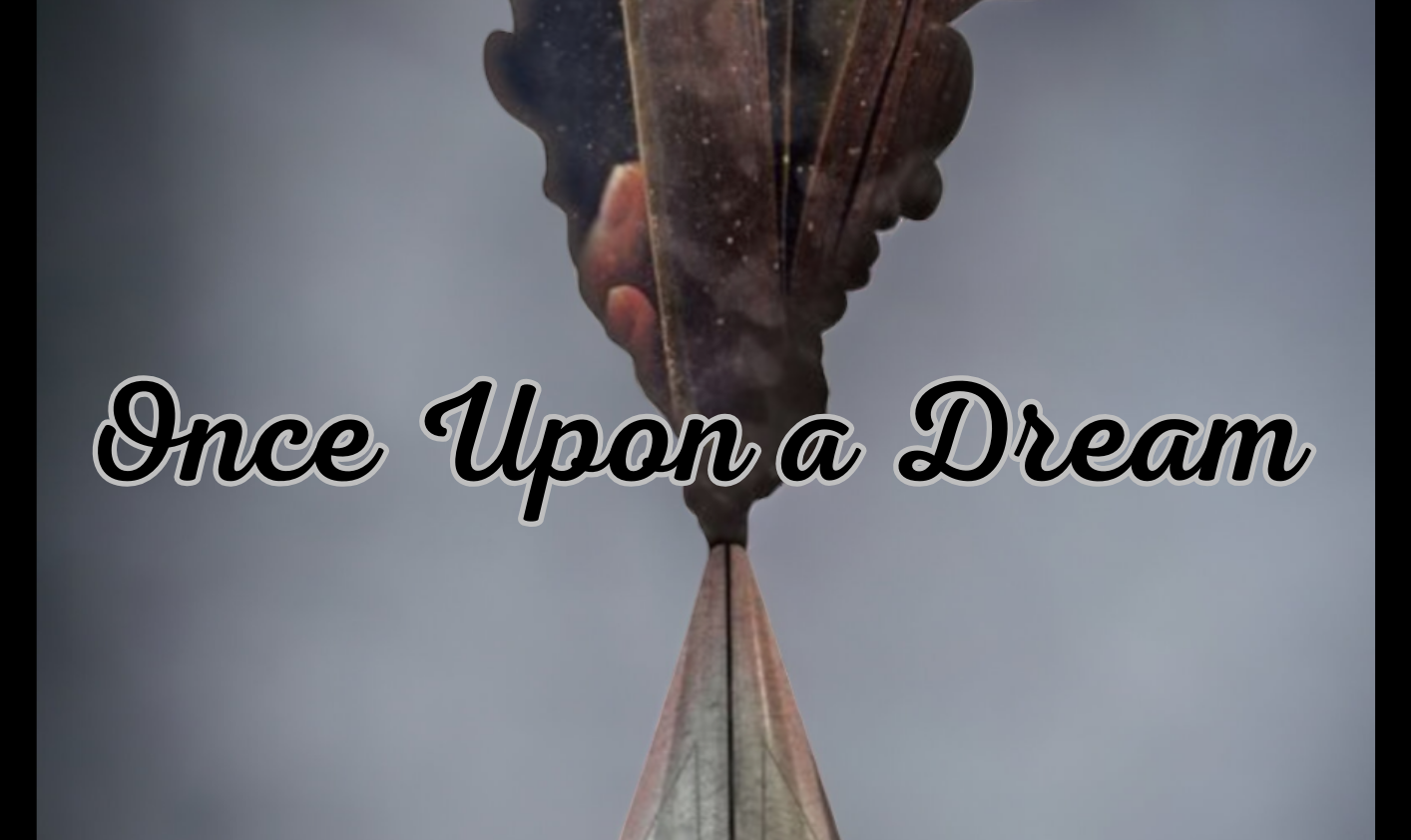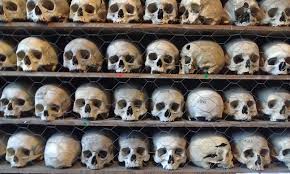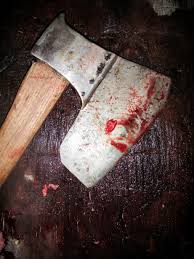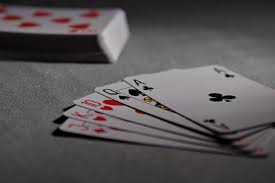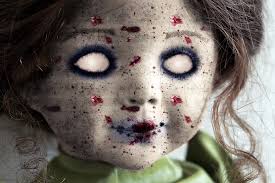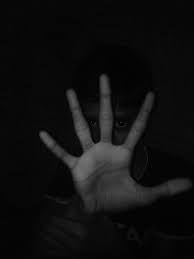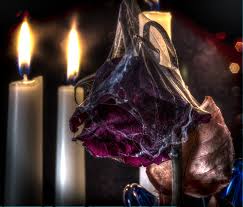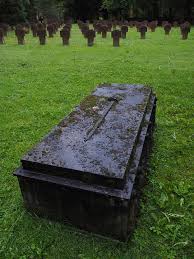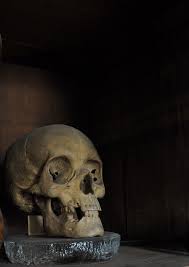There’s an old song about Billy Bagbones. I bet most of you know it, but it’s only a little bit of the story. I’ve got cousins way out in the country whose people were neighbors with his folks. When I was little my great-aunt Winnie told me all of it, the way she heard it when she was just a little older than me.
A long time ago in the foothills thick with trees, a few miles south of where we are tonight, a little boy lived in a falling-down cabin. His name was Billy Boggs. His daddy brewed moonshine from corn and dogwood bark and pine cones to sell in town, but kept too much for himself to make much money. His mama took in sewing and laundry even though she couldn’t keep herself clean to begin with. Billy’s granny lived there too, and bought tobacco to chew with money that could have fed the family better.
Billy was seven years old and there was nothing much special about him, good or bad. He liked fishing and tree climbing like any boy, even though he could never find another kid to play with. Parents told their children to steer shy of Billy Boggs because he belonged to bad folks. His mama and daddy hadn’t started out bad, but they came from bad folks and were sad and mean and rotted from hard living.
Instead of teaching his son to shoot and fight and brew, Billy’s daddy taught him just enough wood chopping to keep the fire burning, then left him alone except to beat him.
“You’re a dumb dirty kid,” Billy’s old man told him, “and that’s all you’ll ever be.”
The old man had fine ears like a hound dog. He could hear the revenue man’s truck coming five miles away, and he could track hogs and deer through brush without having to wound them first. He could hear anytime the boy came in easy swatting range, no matter how quiet Billy tried to be. He could have a been a hunting guide or plenty other useful things, but he drank too much for steady work, so he wasted and grumbled his life away, hearing the world go on around him and blaming his son for it.
Billy’s mama wasn’t much for washing, but she had fine fingers and a gift for sewing. She worked long hours in the house, never so much as going to the porch to watch the sun set. She muttered under her breath what sounded like prayers, but they were full of cuss words, and when Billy came to help her she kicked his legs or poked him with pins.
“You’re a nasty child of sin,” she told him, “and you’ll never be anything else.”
She’d had an old banjo, but Billy only remembered her picking it once when he was just a baby. She’d sold it off to spring Billy’s daddy from jail for fighting. If she hadn’t married Daddy she could have picked the banjo for real money, maybe even played gospel meetings on the radio. But she’d had to marry, she said, and gave Billy another kick or a hard poke in the ribs when she thought of it. Billy tried to be good, fetched and carried for her and did everything she thought up for him to do. He reckoned if he could figure out how to be a good boy, things would ease up on him.
Billy’s mama never went to the porch because his granny practically lived there, and she was the flat worst. She’d stare at the boy like a chicken hawk as he came and went, spitting her chaw into the weeds unless Billy stopped to speak to her or even look at her. Then she’d hock brown slime right in his eye and pinch him with her birdy claws.
“You’re a filthy little twerp,” she’d screech at him, “and you’ll never be good for a thing.”
Then he’d always get a slap and a kick at supper from his daddy and mama both, for what they called provokin’ his granny. Billy was never sure whether his granny was his daddy’s mama or his mama’s mama. They all went together so natural it hardly mattered. He was not about to ask fool questions just to get beat up. Most of his time he spent thinking of ways he could try harder to be good. He wasn’t all that dirty, and he certainly was not dumb, but he’d been called it so many times he believed it. It was why he never thought of running away.
One day the sun came out with no clouds to hide it. The air was warm with a soft breeze that made the trees whisper sweet things. Daddy had passed out drunk, Granny was in bed with hay fever, and Mama was deep in a basketful of sheets to mend, muttering her dirty prayers to the ugly gods in her heart.
Billy ran down to the creek, happy and free. Perfect days only came a few times a year and they taught him what it means to be blessed, even know he didn’t know the word well enough to say it out loud. The frogs were out in the creek enjoying the warm sun, yet he didn’t find a single snake to bother him. He splashed and laughed in the creek, piling mud on his feet just to watch the current wash it away. If that day had not come along so nice, he might have thought all girls and boys grew up the same as him. He was fixing to learn different.
Two little children found him there, a boy and a girl. They weren’t from town or from a farm. They said their folks were traveling north to a place called Oh-Hi-Oh, and they’d stopped the wagon for a picnic just up the hill. Billy was so glad to meet people who didn’t know him or who he belonged to that he played all sorts of games with them, pirates and hide and seek and skip-a-rock. Billy caught flies and set them on the water in front of a big old bullfrog, who’d shoot out his tongue and lasso them into his wide mouth. When it was time to go, Billy gave each of his new friends a button off his shirt to keep. They were nice buttons but nearly ready to fall off, and he wouldn’t ask his mama to sew them when she was eaten up with work. Just as he was leaving for home himself, the bullfrog hopped up to him and burped a happy song. Billy decided to keep him as a pet, to help him remember the wonderful day he’d had at the creek.
When Billy came running into the cabin, busting with excitement over the friends he’d made, he thought somehow he could keep life from going back to normal. It already had. He held the bullfrog up to his mama just as proud as could be.
“I trained him to follow me!” he said, thinking a bad sinful child could never do such a marvelous thing. His mama didn’t say a word at first. She stuck her sewing needle straight into the frog’s ear, which made it go slack. Then she grabbed the floppy thing by its big legs and slammed its head against the floor. The poor thing never made another croak, but his mama had something to say.
“Well, go and build a fire to stew it in. And how come there ain’t no fresh wood in the fireplace?” And she knocked him on the side of the head. Billy had taken every kind of licking there was, but something about the way she did with his frog made him feel different. It was just like she’d knocked those nice children, who wouldn’t hurt nobody, on the side of their heads too. What had the old bullfrog done but be hungry and friendly? It was one thing to smack a bad childlike Billy, but he had enough sense to know an innocent thing when he saw it. All at once he wondered how his mama would like to be knocked on the head herself.
What his mama didn’t know, what his daddy didn’t know, what his granny sure as hell didn’t know, was the secret Billy kept all for himself. It was the reason he kept so cheerful no matter how rough his family treated him. He knew he could be good enough to please them someday because he knew that in his heart, he was good. He knew because he had been told, and the one who told him was always with him.
Billy thought it was the Lord Almighty speaking to him, the same who looked after the poor and mistreated. He believed in the goodness of creation even when he saw his mother’s faith turn to poison in her breast. He believed in wonderful rewards he’d earn for not complaining, for doing his best, for keeping his chin up. In his sweet trusting way, he never imagined that there was another who knew the scriptures as well as the Lord, to use against the innocent. The voice that came to Billy in sleep and solitude told him, “You are good in my sight. You are loved when you suffer for my sake.” He felt the words were pushing the hurt and anger out of him. He never dreamed it could be old Scratch putting on a holy accent, packing his bad feelings down like powder in a cannon. For months and years the devil had played his trick on Billy, until he only needed to touch a spark to the charge in the boy’s belly.
“Now, my son,” said the voice in Billy’s heart. “Free yourself. Show them what they’ve made.”
There was a wooden mallet in the kitchen that his mama used for pounding hog meat tender when they had any. It was stained dark with hog blood, so Billy figured nobody would mind if he spoiled it some more. He took it right back to his mama and gave her a good knock, right in the jawbone. She slid from her chair to the floor with a kind of wet-sounding sigh. Billy figured another knock would really teach her, and once he’d done that he had a hard time thinking of reasons to stop. Before he was done he’d knocked his mama’s head with that mallet almost as many times as he’d ever been hit himself. Finally, his arm got tired and the mallet felt heavier than before, and he noticed there was hardly any head left to knock.
Billy’s daddy found him in the yard awhile later. The old man was up and around with a mighty sore head. Billy ignored him at first, kept splitting wood like his mama had sent him to do, but his daddy was looking for something to hit. He saw the dark rusty footprints Billy had made all down the porch and settled on that for a reason. He punched the back of the boy’s head, nearly knocking him forward over the splitting stump. Billy almost fell on the hatchet he used to split smaller pieces and shave off kindling. Things might have stopped there if he had. His daddy would have run off to the hills, or maybe had a change of heart and cried for the love he’d kept from his only son, or maybe kept on drinking til somebody found the four of them knocked and chopped and drunk and starved to death all around the falling-down cabin on the hill.
Instead, Billy stumbled forward a step and caught himself. He didn’t turn around right away, but he cocked his body to move quick like a little clock spring. The voice of love was talking to him again, telling him carefully every little thing he ought to do.
“What the hell you step in, boy?” growled his daddy. “You hear me, dummy?”
Billy gave his daddy the chance to calm down, to back off, just as the voice in his heart told him. That way he could never be blamed for what might happen. When his daddy’s rough hand spun him around, Billy was ready with the hatchet. He was just the right height to swing for the big man’s knee. A second later, the two halves of the knee dropped to the ground and the big broad chest was lined up for a second stroke. A second after that, the forehead of the man now roaring in pain and surprise was lined up for strike three. Billy had never swung an ax crosswise at a standing tree, but he knew how to hit a baseball. It was just about the same thing.
Billy was stoking up the fire when his granny came out of bed to complain about the noise, or maybe about the quiet, or maybe that no dinner was cooking yet. She stood above him in her shawl, screeching about the ruined floor that seemed to concern her a good deal more than Billy’s mama with her head all gone. When she saw the boy all caked in gore she cursed him, telling him she’d always known he’d bring them ruin.
“Hateful, hateful, hateful,” she spat. “Shame on the day that saw you born.”
Billy, who now knew that shame and ruin had existed long before him, had in fact brought him unwilling into the world, had nothing much to say. He had spoken his last a good while ago. The voice of love gave its next instruction. Billy rushed at the old woman but instead of striking as she cowered away, he seized a corner of her shawl in each hand and spun her with the skill of a square dancer she might have known in bygone days. He released her just so to send her tumbling across the hearth into the well-built fire. As she cried out and flailed and crackled, he held the iron poker that she had used to stir him from idleness in the past, yet he treated her with the gentleness he owed his elders. He only used a few soft jabs of the iron to keep her from crawling out, until she was quite still, and a pleasant roasting smell filled the cabin.
Billy spent the remaining daylight dividing his family into easily carried pieces with the hatchet and a butcher blade from the kitchen. He meant to rise early and dig a single hole to bury them. He was not feeling tenderhearted enough to call it a grave, but he did not mean to let the bodies fester and foul the little cabin, bitter a place as it had become to him. Had his heart been a shade colder, he might have stewed up a pot of them to sustain him in hard days to come. But he was ready to have the whole business done with. The freedom he had seized for himself was dawning on him by degrees, and he hoped to spend the following day enjoying the sun again. Something, a queer instinct that whispered softer than the voice of love, told him to set aside a few fragments from those he would bury. These he stowed for safe keeping in the woodshed.
It would be easy to think that for Billy Boggs, things came within a hair of turning out fine. If you did not know how deep the devil had his hands in that poor child from birth, you’d think it was only the one bad chance that cast him into ruin. There happened to be a wandering preacher man along one of the cart roads. He traveled with a mission of saving souls when he found them wanting. He was young and unwed, freshly minted by the bible college, young enough to be Billy’s older brother. He had made good road time that day but being in a strange place he feared losing his way. That was why he rode his mule up to the yard of the falling-down cabin. The sun was long set, but he could see a fire burning inside and a small shadow moving through the open door.
The mule shied, nearly tossing its rider, and would come no closer than two dozen yards from the house. Not until the preacher crossed the threshold did his nose pick up the sharp copper smell that had frightened the animal. It was a farm smell he knew from his own childhood, a smell of the fall slaughter. It was blood and rendered flesh. What he found in the cabin brought him to his knees. He gave a quavering cry as he searched the room for one whole, recognizable human form.
That was when Billy, startled by the intruder’s ghastly warbling, stabbed the preacher deep in the thigh with the butcher blade. It was a confused, inexpert blow but it roused the preacher to full alarm. Unmindful of his hurt leg, the man retreated into the yard and leapt on his mule. Kicking the bewildered beast to speed with his good leg, he rode it like a hellhound four miles to town, crying murder and massacre all the way.
The town folks returned to the cabin a short time later. The sight of a holy man with blood all down his leg and terror in his eyes put them in a sort of frenzy that it might not so much these days. He put up a shout about the small demon in the falling-down cabin on the hill. On they came in less time than you’d think possible. They came with shovels and shotguns and fire, and most of them carried stones.
They found Billy busy, burying the fragments of his people. He paid them no mind nor made them any menace, for it grieved him having harmed a stranger who meant him no ill. He had a mind to finish his chores and leave the rest of the world in peace. He was dropping the last of the dead into the hole he’d dug when the first rock struck his head. Crying in one voice of vengeance and hate, they rained their stones upon him as it’s told in the Good Book, seeking to break the monster who had made the carnage they beheld.
They mangled poor Billy, not knowing him for a simple child wronged by heaven and hell and humanity alike. The largest rock came hard enough to split his skull, and caused his brains to ooze. They might have torn his limbs one from the other had not the loudest of them cried for him to be decently hanged. They marched all the way back to town bearing the dying boy’s body, and using the good stout rope from the town well, they hauled him up on the gnarly limb of a grandfather elm that stood in the square. They hoisted him and let him swing where all his good neighbors could look upon him.
Only then did the evil one, author of all the day’s misery, take the scales from their eyes. He had appointed the lynching for his own purposes. Dumbstruck, shamed and horrified, they saw that they had seized and stoned a young boy without knowing his guilt for certain. Their madness washed away as from a drain with the plug out, yet nobody had the nerve to approach the tree and let him down. None of them spoke as they turned homeward. The only sound was Billy Boggs twisting at the end of a rope, high on the elm in the center of town.
Tadpole, tadpole, frogs in the sand
Billy came home with warts on his hand
“Shame!” said Mama and thumped his head
Billy took a hammer and he knocked her dead.
Graveyard, graveyard, digging up roots
Billy came home with mud on his boots
“Shame!” said Daddy and blacked his eyes
Billy took a knife and skinned him alive
Woodshed, woodshed, hide ‘em in the dirt
Billy went to church with blood on his shirt
“Shame!” said the preacher and cast him out
Billy took a hatchet and shut his mouth
Murder! Murder! All through town
Billy came walking when the sun went down
“Shame!” said the folks and they took his life
Hit him with a hammer and a hatchet and a knife
Hangman, hangman, string him up high
Let Billy be the last in town to die
“Shame!” said the devil and cut him down
Made him a body from bones in the ground
Rooster, rooster, crowing at the sun
Where’d Billy go to? Now he’s gone
Body sewed up and brains in a sack
Billy got away but he’s gonna come back
See, there’s a Bible verse telling how the devil stalks the world like a lion, looking for folks he can eat. He labors in every heart, understand, but only once in a while does he open his jaws and gobble up a soul. He’d been cooking Billy Boggs for seven years, and my oh my how Billy must have tasted. Turning the poor child loose on the kin who’d misused him was only one delicious bite. The real feast began the next midnight, when old Scratch took himself walking through the square to see how things had shaken out. Every door was shut tight, with no lights in any window. It was not the quiet of a little town asleep. It was a cemetery, each home a crypt where folks had locked themselves in. On account of what they’d visited in fear on a poor troubled child, they dared not speak or look one another in the eyes. Nobody but the youngest children had taken any supper, entombing themselves in sleep and resignation to heaven’s judgment, few expecting to live til morning.
But the punishment for their sin was not to be death. In their beds they slept soundly, and dreamed of guilty secrets til the sun shone in and they rose to see the morning newly created. After one instant of joyful promise, they looked closer and saw the world was the same old horror as ever. Never would a sunrise come again that failed to remind them. That was the reward of the murderers, not to die but to live in dreadful knowledge of the hearts.
The evil one knew this all along, smiling to count the ones who would know despair and end themselves the soonest, compounding the black marks against them in the Almighty’s account book. Standing beneath the tree where the little body hung, he thought of the many new rooms he would have to build in his own foul halls. A mottled crow roosted on the limb, but dared not peck the boy’s sweet eyes without leave from its master. The eyes were shut, the expression on the beaten face almost prayerful. The child looked only asleep, but for the rope about his throat. It would have pulled the heart from any creature except the prince of hell, who half-sang to himself as he watched the breeze turn the rope, this way and that. At two minutes after twelve, he went to work.
From his pocket he drew a long bandage of coarse linen, narrow as a ribbon. Then he took a length of thick black thread made for binding up wounds and sealing the lips of the dead. At the thread’s end was a fine needle fashioned from a bone sliver, the kind that may shear off into the blood and stab the heart from inside. The body has such ingenious ways to murder itself that for most men, enemies are a needless luxury.
At the devil’s command the hanging limb withered and died. It was a trick he had stolen from the preacher of Galilee. He sewed up the worst of the child’s wounds and bade the still heart beat again. The Billy-corpse flailed about senseless in the dirt. The devil wound the linen bandage in clever loops around the broken skull, binding in the brains and seeping matter, then fastened the ends tightly round the throat. Two eyes fluttered open, and the thing Billy had become looked in silent reverence on its deliverer. Old Scratch had no stern decree for his dear one, no brutal marching order. He had come to teach the boy secret ways of mending himself. At dawn he handed over the oily black thread as a gift and sent the Billy-thing away to walk the world.
The folks in town were reluctant to shake off sleep. It was Sunday, but no one rang the church bell. They dared not tempt holy wrath before the Lord’s altar. Instead they came in barefoot twos and threes to the town square, where they found the hanging tree fallen, the rope a frayed and snakelike ruin. As the women who found the open tomb on blessed Easter felt wonder and joy, these folks felt horror. It was a dreadful discovery, yet in their hearts many were not surprised. The devil had claimed and preserved his own. That did nothing to soothe or justify their hearts. In silent assent they gathered lamps and candles. As pilgrims they went, two by two, up the hill to the falling-down cabin. There, as the company looked on murmuring psalms, each one cast his light through the window until tongues of flame rose high above the eaves, issuing a black column of hell smoke. The congregation prayed that their penitent act be accepted as a cleansing, not as a further mockery of the commandments they had all held sacred before the madness of the previous night.
Billy wandered the nearby woods for some hours, til long after the interlopers had gone home again. From an old memory, or old it seemed after his long night of hell, he found his way back. The ruins of the house were smoking, a vile remembrance charred into the earth, but he did not come in search of shelter. In the woodshed he found the tokens he had saved, obeying the command of his false conscience. With the gory hatchet he cut his fingers free one by one. In place of them he stitched the slender fingers of his mother. The womanly digits on his chubby child’s fists were spidery and queer, but with his nimble new hands he could grasp and sew and do all manner of things much faster.
With rough strokes of the bone-blunted knife he took his father’s keen ears for his own, sewing them in place under the bandages that made his soft skull. With these he could track anything through the dark, no matter how small or fleet.
He had no use for a sharp tongue, especially since his granny’s was stained with chaw. Her lungs were tough and callused from the exercise of shrieking. Instead he took her flinty eyes which could see everything by dark and by day, sometimes things only imagined. With the devil’s art and his gift of needle and thread, Billy made himself all new.
Probing deep with his hands, he sifted fresh grave dirt for more parts to strengthen and sustain him. Some were half-rotten and had to be replaced within days. Billy began to walk the woods along wagon roads, listening for unwary travelers. From a young blacksmith he took shoulders like a bull. From a hermit he stole tough horny feet that ran silent and sure over gravel and sharp river rocks. Soon he was a much greater thing than a defenseless boy, yet not any sort of creature that you might call a man. He prowls these parts even today, adding to himself from the victims he takes. His parts are always wearing out and going dead, but there’s always new folks passing through. I reckon one day he’d like to have a good left leg like yours, and a strong young heart like yours. Be careful in case he comes close enough to hear it beating in the dark. The only thing Billy never worked out is how to switch his dirty cloth head for a whole one of flesh and bone. Keeping his body alive while he changes heads, that’s the one secret old Scratch never shared. He held it back to make sure Billy stays a monster no matter how much life he gathers to himself. That way his wandering and searching will never end, and when our little ones grow older the song will be theirs to sing.
Dan Fields once absconded with a film degree from Northwestern University. He lives in Houston, Texas with his wife and offspring.
